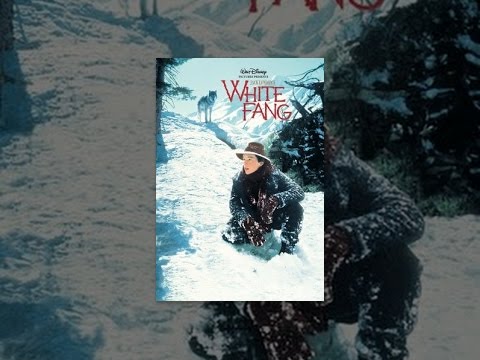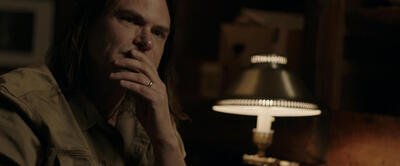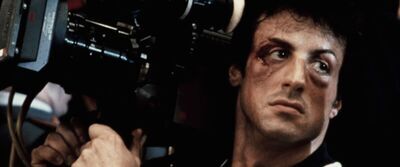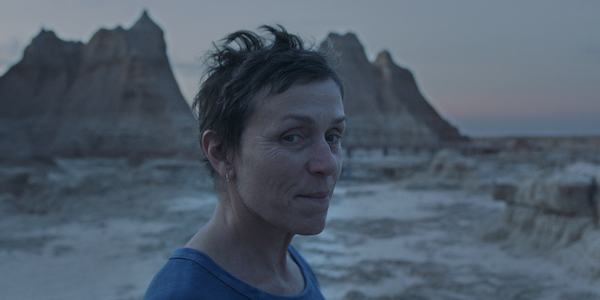HILLBILLY ELEGY: Our Annual “Movie to Get Mad About” Is Here!
I didn’t go home to visit family for Thanksgiving this year. Instead, I decided to spend it with J.D. Vance’s family. I didn’t plan any of this obviously, but I figured in the spirit of this holiday I should try to make it sound as lively as possible in my apartment. Ron Howard’s adaptation of J.D. Vance’s memoir, Hillbilly Elegy, is a movie that comes out practically every year around this time. It’s that loud, boisterous, emotionally manipulative, intensely ACTED (all caps) drama that has all of the echt portrayals of familial dynamics that Ingmar Bergman’s 70’s work had but with none of the artistic flourish or memorable characters. Three Billboards in Ebbing Missouri, August Osage County, and American Pastoral are just a few other examples of what I’m speaking of. Hillbilly Elegy to its credit is actually much better than any of those three movies and in fact, it’s also much better than the book it’s based on, though neither of those comparisons is saying much.
The Rise of an Appalachian Elitist
One of the major problems with J.D. Vance’s story, which became automatically apparent to those who have actually lived the experience of ‘hillbilly’ culture, is that Vance is a Yale-graduate venture capitalist who barely spent any real-time engaging with or living in the community he claims as his own. Ron Howard’s film is a dead giveaway, being executive produced by Vance, and written and directed by two Hollywood liberals (Howard and screenwriter Vanessa Taylor), that Vance’s aim at depicting the hill communities of Appalachia was simply to tell a good story and make himself feel like the son-of-the-soil that his right-leaning politics need him to be in the current cultural moment. The problem is that Vance isn’t a good storyteller, he just had a fairly interesting family. Ron Howard on the other hand has had a successful career telling stories in the mold of Spielberg and George Lucas though not with as much success as either. This gives Hillbilly Elegy the air of competency it doesn’t quite deserve.
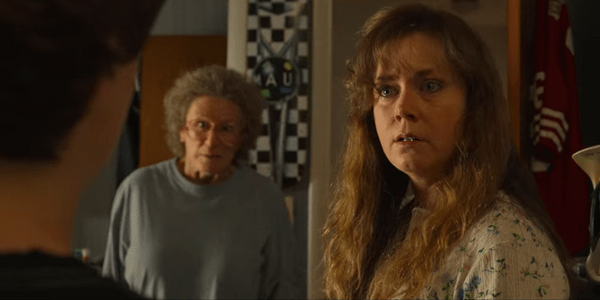
Unfortunately, the source material is the source material and much like Spielberg’s Ready Player One, a competent filmmaker can only take something this conceited and facile so far without completely changing the fundamentals of the story itself. So, we get the main dramatic points of the older J.D. Vance’s (Gabriel Basso) recounting of his childhood in Middletown, Ohio (not Appalachia), and his time trying to land a big VC firm gig and dating his girlfriend Usha Chilukuri at Yale (also not Appalachia). We get to see the ways in which his family is a tight-knit group who values bloodline loyalty and support for one another. We see his mother Bev (Amy Adams in a reliably fine performance) and Mamaw (Glen Close, also fine) and generational issues with domestic violence and drug abuse. They support the young J.D. (Owen Asztalos) the best they can from meager means and a fighting spirit that is a necessity for their starry-eyed belief in the American Dream which has all but failed them. The dream lives on in J.D. however, and he, unfortunately, uses it as a way to patronizingly reflect on the fact that if America failed anywhere economically, it specifically failed the white people he grew up around.
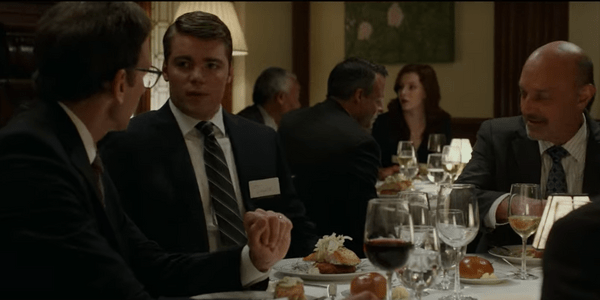
Much of the political points that J.D. Vance has spouted throughout his time in the spotlight, social conservatism and fiscal uh– also conservatism but sympathetic to government support for white working-class Appalachian ‘hill people’ (basically a long-winded way of saying right-wing populism), is not discussed in the movie. Vance’s politics are the same unfocused and preposterously glassy-eyed viewpoints that you’d find in the elitist crank Op-Ed sections of major newspapers in America. Pick anyone between David Brooks, Ross Douthat, Maureen Dowd, and Megan McArdle, and you will find the same strain of Ivy League brain-poisoning that Vance has even in his desperate attempt to pretend his fake-Appalachian roots don’t ‘fit in’ with those people. Several moments in the movie showcase Vance as the fumbling outcast surrounded by elite suits as he can’t tell the difference between a Chardonnay and a Sauvignon Blanc and doesn’t know which fork is the salad fork. These are perhaps relatable and charming erased of context from the fact that Vance ended up fully embracing the world of completely out of touch think-tank wonks to the point of supporting a nationalist identity and very strange, unscientific ideas about fertility.
Final Thoughts
Ron Howard’s movie tries to focus Vance’s novelistic words to purely familial dramatic moments and reflective inner monologue on personal tribulation, which serve dutifully the movie’s essential purpose – to win Oscars. The direction is bland and unnoticeable and the story is nothing remarkable, but if we’re talking about the kind of movie that Hollywood can feel tall atop their high-horse about while feeding breadcrumbs of hope and relatability to the “normals” of the Midwest and South who will watch this on Netflix then Hillbilly Elegy will fit the bill enough for a few nominations, even a win. This movie is a wholly standard Hollywood drama and isn’t worth really getting mad about even though many have already done so. In context to its insufferably self-congratulatory source novel, Hillbilly Elegy might be the least-bad adaptation one could hope for, for whatever that’s worth.
Hillbilly Elegy was released on November 24th and is currently streaming on Netflix.
Watch Hillbilly Elegy
Does content like this matter to you?
Become a Member and support film journalism. Unlock access to all of Film Inquiry`s great articles. Join a community of like-minded readers who are passionate about cinema – get access to our private members Network, give back to independent filmmakers, and more.
Join now!
